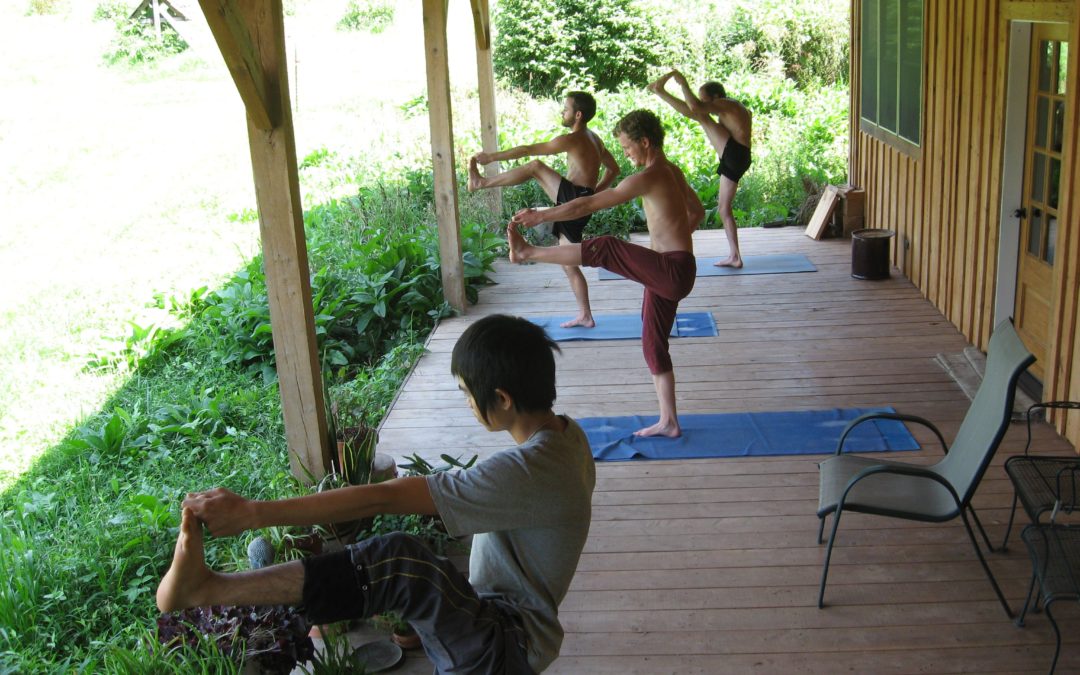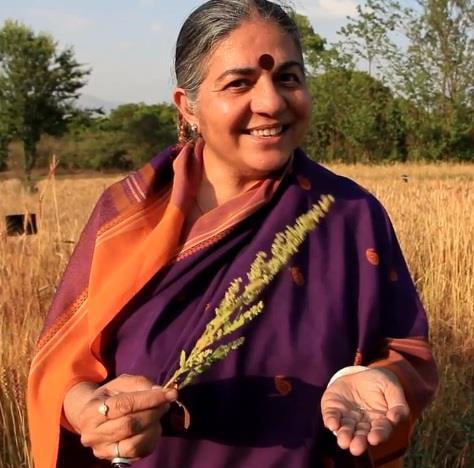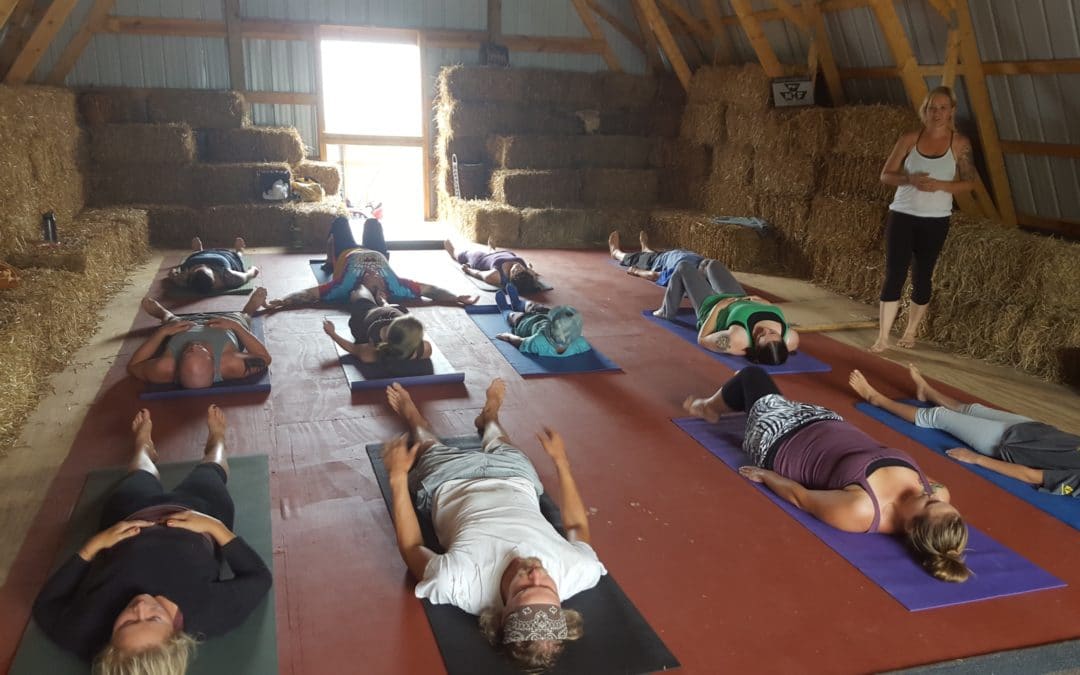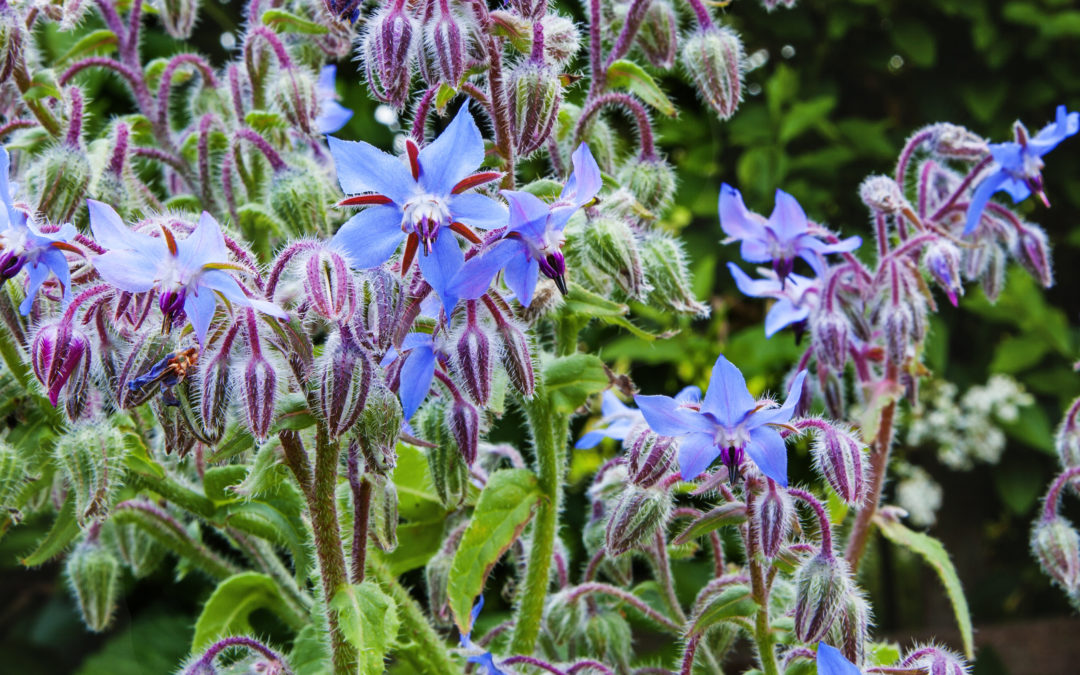
The idea that farming could lead to the same physical problems that plague office workers was new to Elderbrock. Although the younger generation of farmers — especially those who have small, organic operations — try to take better care of their bodies, they have other priorities, such as making a living.

In his book The Myths of Safe Pesticides, organic agriculturist and lecturer André Leu delves into scientific research to present evidence dispelling the claims of chemical companies and pesticide regulators that pesticide, herbicide and insecticide products are safe.

The book Food, Farming & Health shows how our health is a continuum from the soil, to the plants, to our bodies.

As farmers we face weather extremes, deadlines, unforeseen calamities and a variety of demands on our minds, bodies and bank accounts. We work days that can stretch far into the nights regardless of the conditions outside. To sum it up, farming can wear a person down, fast. So what is yoga? It isn’t really necessary to understand the whole history of the practice, but essentially it is a method of working with the mind, body and spirit to bring about balance.

Supporting resident and migrating pollinators, including bees, not only aids a critical link in the natural ecosystem cycle, but a farm’s production can increase substantially with the presence of ample pollinators.

The moment you get your first honeybees, you start noticing all the potential plants you could grow to support pollinator health.








